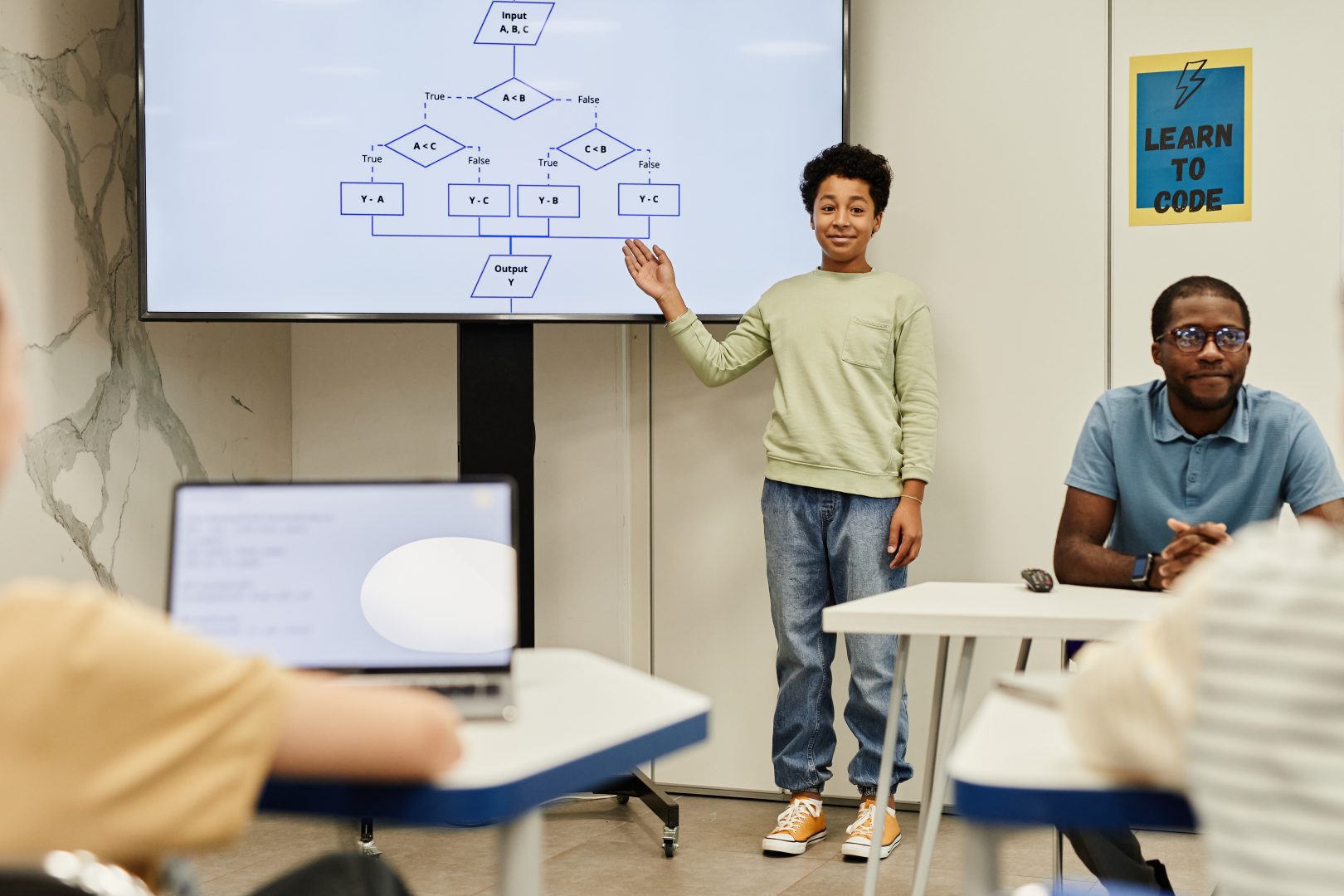Empowering Students through STEM Mentorship
by Vladimir Blas-Aquino
My experience as a mentor with CTS’s Computational Thinking Equity Project (CTEP) has been both challenging and rewarding. Each day in the program presented itself with new obstacles to overcome and opportunities to learn and grow. However, observing students’ progress and growth in the classroom has made my experience worthwhile.
Computational thinking (CT) is a problem-solving process that comes before programming in which a problem is analyzed and broken down into manageable steps that even a computer can understand. This approach enables students to solve complex problems they might otherwise find tedious and involves designing systems and understanding processes that draw on fundamental computer science concepts.
One particular experience I had was working with a student who was not particularly interested in mathematics and struggled with class assignments. I believe that my presence, support and encouragement boosted her confidence to ask for help, and she was able to improve her problem-solving skills using the CT strategies she was learning in the program. The CT activities have empowered her and her classmates to engage in the abstract world of mathematics.
Incorporating CT principles into math classes can greatly benefit students by fostering a more interactive and engaging learning environment. I have observed that students tend to be more engaged in classroom activities that involve open conversation and interaction between the teacher, the mentor, and their peers. Such activities provide opportunities for students to participate actively, exchange ideas, and ask questions. I also observed that students are more willing to express their creativity when both a teacher and a mentor can jointly facilitate their learning experience. Students were able to establish a close relationship with me as their mentor, fostering a sense of safety and trust. I was able to provide students with a range of perspectives and insights relating to computer science that enabled them to explore their creative ideas more deeply. Having a mentor has also promoted a greater sense of accountability and responsibility among students. Students were more likely to strive for excellence when they had a mentor who is invested in their success.
CTEP has been a valuable personal and professional experience. It’s given me the opportunity to take on leadership roles in the classroom and assume responsibility of the student’s learning and development of their CT skills. CTEP has given me a sense of purpose and fulfillment. challenged me to think creatively and adapt my mentoring approach to meet the diverse needs of each student. It has allowed me to give back to my community and has helped me to develop a greater understanding of the importance of mentorship and the impact it has on students.

Vladimir Blas-Aquino is an undergraduate senior at UCLA majoring in Electrical Engineering and a STEM mentor with CTS’s Computational Thinking Equity Project (CTEP). He is a transfer student and a DACA recipient. When he was in high school he wished he had his own mentor of whom he could ask questions. In high school, he was a peer college mentor during his senior year. He was also a math tutor at Los Angeles Trade Technical College. He is inspired to give back to the communities he was raised in, South Central and South East Los Angeles. He loves learning about electromagnetics and hopes to begin a career in RF engineering.


